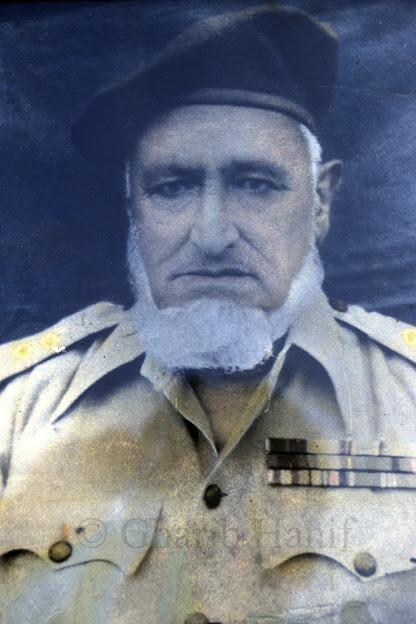Hast-o-Bood Part-45
Chapter 7
Arrival and residence of Rajput Mangral in Gujarat
Mian Nooran Khan was very well-mannered, tenacious, fearless, a man of character and an expert in administrative matters. He blamed the government for his selfishness and dignity and after raising and supporting his family in the best possible way, Rahi Malik disappeared. He was a pious elder and one of his descendants, his son Akbar Mian Elahi Bakhsh, was engaged in government service as well as in religious pursuits, the details of which will come in due course. Mian Rasool Bakhsh also did not have a precedent in good character, decency, tolerance, courage and administrative ability. Both the brothers upheld the high values of their famous father Mian Muhammad Azam and left for their children and heirs the high impressions which they have set as the guiding principles in determining a clear course of action. Could have proved
May God have mercy on the lovers of the Holy Land
What an English thinker has said in this regard
Translation: We must follow in the footsteps of our great people.
Chapter Eight
Mian Kamal Din's son Mian Abdul Wahab and his heirs
Rai Abdul Hakim's eldest son was Mian Kamaluddin. At the time of his migration, he was young, energetic, well-mannered and possessed of the ravages of youth. The most important issue in the Sikh administration was earning a living in a new place of residence. For the passing of a weak father and family, he regained consciousness. He started beating his hands and feet and was soon taken into the Sikh army as a soldier. At the same time, they got married and had an only son, Mian Abdul Wahab. At that time, the struggle for education in Gujarat was limited to religious studies in mosques and homes. Or in relatively more knowledgeable families, Gulistan and Bostan, Saadi Shirazi's works were taught in private, which were taught to children privately. The official language was Persian. Mian Abdul Wahab, after a meager religious education, took a job as a lost government official and led a dignified life. He was naturally a quiet, hardworking and simple man. He was a good man at heart and could rarely do any harm to anyone.
Mian Abdul Wahab was married in the life of his father Mian Kamaluddin. Their only son, Mian Nizamuddin, was born. Information on the death dates of Mian Kamaluddin and Mian Abdul Wahab is missing. Mian Nizamuddin began his career as a police officer after a basic religious education and limited Persian teaching. And with his hard work and good performance, courage, and good performance of his duties, he progressed as a Hawaldar. At that time, such appointments were made on the basis of family nobility. Mian Nizamuddin Salh Jo, was a pious and intelligent elder. Tradition has it that he spent most of his time in mosques in remembrance of God. Even soldiers would often search for them in mosques and take them with them to investigate crimes. He died on 18 November 1897 in the English administration. He had three children, Mian Muhammaduddin, Mian Qamaruddin and Mian Fazluddin. His only daughter was married to Mian Ferozuddin Patwari from whom Mian Zahooruddin was born. Mian Qamaruddin was a strong young man. He fell in love with Allah on March 12, 1919, while his younger brother Mian Fazluddin died in infancy. Mian Nizamuddin's lineage of Zakur and Anat started from his son Mian Muhammaduddin.
Mian Muhammaduddin started his career after matriculation as a clerk in the office of Deputy Commissioner Gujarat. He was later appointed as the Judicial Secretary of the Tehsildar of Gujarat. During the last few years of his tenure, he was appointed Deputy Commissioner. He was considered one of the most intelligent, hardworking, law-abiding, administrator and dutiful of his time. They were tall, fearless, and tyrannical. In addition to his personal influence in the city, he was considered a prominent citizen due to his adventures. He was a well-dressed, well-mannered and well-maintained man. He was awarded a medal and a silver pocket watch on another occasion by the Deputy Commissioner of Gujarat for his outstanding performance and high ability of the Government. He also took an active part in social affairs and was the General Secretary of Anjuman-e-Khudam-ul-Islam Gujarat, which was running the Islamia Middle School for Students. He was also the General Secretary of the Board of Governors of this school. After living a life of militant struggle, he reformed the world of eternity on August 8, 1925.
to be continued .......
Note: Blogger does not necessarily agree with any text in the book.



Comments
Post a Comment